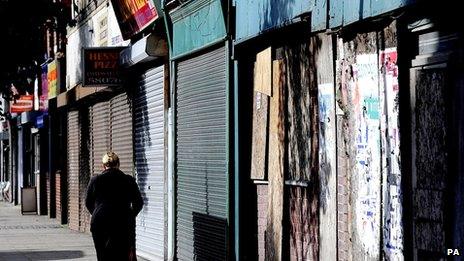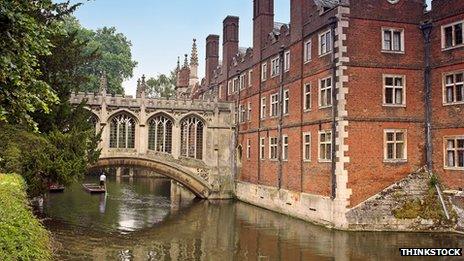Economic gap between UK cities 'widening'
- Published
- comments

Cities such as Hull would find it more challenging in a weak economy
The gap between the relative economic performances of towns and cities across the UK is widening, a report has said.
The difference between the number of people claiming Jobseeker's Allowance in Hull and in Cambridge has nearly doubled since the start of 2008.
Six times as many are claiming in some parts of Rochdale as in Cambridge.
Research group Centre for Cities said the private sector's struggle to create enough jobs to aid growth was "playing out very differently across UK cities".
The gap in the claimant count rate between Hull and Cambridge had increased from 3.2% in February 2008 to 6.1% in November 2011, the report said, external.
Meanwhile, the area of Rochdale with the highest number of claimants had 30.3% of people on the benefit, while the area of Cambridge with the highest rate was 5.0%.
The report said that towns and cities with less dynamic private sectors, such as Hull, Doncaster and Newport, would find it more challenging to offset the weak national economy and the ongoing shrinkage of the public sector.
'Tailored policy'
It said cities that had performed well, such as Edinburgh, Cambridge and London, all had strong private sectors, and high numbers of skilled residents and "knowledge workers" - those who work in professions such as law, accountancy and finance.

Cities that had performed well had high numbers of skilled residents
It highlighted Milton Keynes and Aberdeen as well placed to drive the national economic recovery, as they had seen a large number of business start-ups and were highly innovative, with significant numbers of patents registered.
Last week, official figures showed the UK's unemployment rate had risen to the highest level for 16 years.
"The gap between cities is widening," said Alexandra Jones, chief executive of Centre for Cities.
"This makes it vital that government policy is tailored to meet the needs of each city rather than one-size-fits-all. What is right for Brighton and Reading will not be right for Dundee and Middlesbrough."
The Local Government Association (LGA) said the report highlighted the differences in how towns and cities were dealing with the tough economic climate.
"Councils strongly support the premise that government policy must be tailored to meet the needs of each individual city," said Peter Box, chairman of the LGA's economy and transport board.